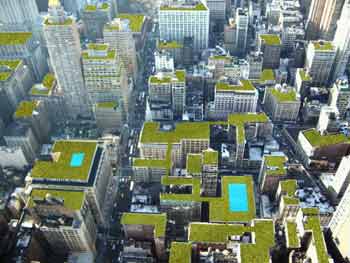
Sunday 17th October Green Drinks Malta will be holding a tea-time & afters event called
Permaculture Propagation – A going with the flow experience
between 4pm and 8pm
at the wonderful oasis Dar Frate Jacoba, Triq Wied iż-Żiju, M’Scala
This event should not be missed by those who are still wondering what the hell is Permaculture?, like the idea and want to implement it, enjoy green gatherings, are looking for an alternative afternoon out or just want to be invited to a unique spot in the South of Malta. Whatever your reason, you will have to apply by sending an email to Natalie: info@greendrinksmalta.org. The maximum number of people for this event is 60.
The event is free (well partly funded by EUPU this time round) but a donation to Dar Frate Jacoba once you’re there will be appreciated by the wonderful and hard working team who run the place.
What to expect: Fair-trade beverages to welcome you, a short intro about Permaculture & the completed training programme and an interactive info fair. All this will be topped off with wholesome hors d'oeuvres & wine in the company of lovely people.
Booking is open.
... by the way, Green Drinks Malta together with the Permaculture Research Foundation & Bahrija Oasis, is commemorating the World Day for the Eradication of Poverty and reiterates that Permaculture is a meaningful process to eradicate poverty. Peppi Gauci had the following to say “Permaculture is actual practical work which involves action to eradicate poverty on many levels, financial, environmental, ecological, physical, spiritual, emotional, and psychological”. This is how Peppi explains it:
An insight about Permaculture and its link to Eradication of Poverty
In our modern world, globalization has become a factor of major influence in the way we live. Technology has changed the way humans interact with each other and the planet drastically over these last fifty years. In the western world, civilization has engaged in systems which by now are completely dependent on globalization. What does this mean? This means that virtually everything, from the food we eat to the fuel we use to get from one place to the other, from the tools we use, to the fabrics of our shelters, is dependent on globalisation.
Although, many comforts are owed to this factor in the west, much of the real price of this system is being paid in other parts of the planet to the detriment of other people and the planet itself. Globalisation is dependant on a capitalist system which means that in order for it to function, consumption of energy and materials need to be maintained.
However, not only there is not enough energy and resources to supply the entire world's population with the trend we are used in the west, but since the consumption rates are greater than the natural supply ability our system is generating the phenomenon of poverty. Poverty in the west is linked to the absence of material acquisitions for example money and property. However, poverty goes much further. The inability for us to respect our environment, observe the natural patterns and maintain enhanced growth of our natural resources is a type of poverty which is presently being cushioned by globalization. Poverty in our society is everywhere. We have become nations which are suffering from poverty, be it physical, spiritual, environmental, psychological, communal or cultural. Yet, we fail to see this as the messages in our media and modern life projects otherwise.
However, it is only a matter of time, until we will be forced to see that what we are being led to believe is only an illusion created by a system which is running out of time. It is only a matter of time.
Permaculture and permaculturists around the world are working along the realisation that our planet needs our attention in order to sustain a balanced humanity. The main ethoses are Earth Care, People Care and Fair Share. Once these are cultivated, than we are able to once again be in the abundant state of the planet's capability. Permaculture focuses on symbiotic relationships which foster stronger and resilient communities both in the human aspect and the natural world. Hence, Permaculture is gaining the attention of millions of people who have understood its validity for the survival of the human kind within healthy ecosystems and have joined their potential to cultivate themselves as part of the solution to present problems. To conclude on this I would like to phrase Bill Mollison (one of the founders of Permaculture 1976) and say ''The problem is the solution” and “Everything gardens''.









.jpg)
.jpg)

